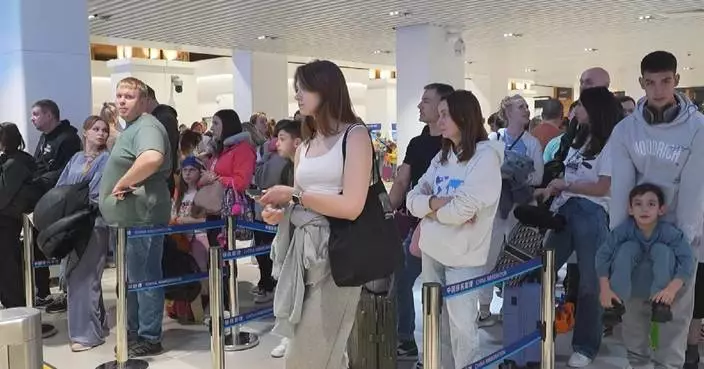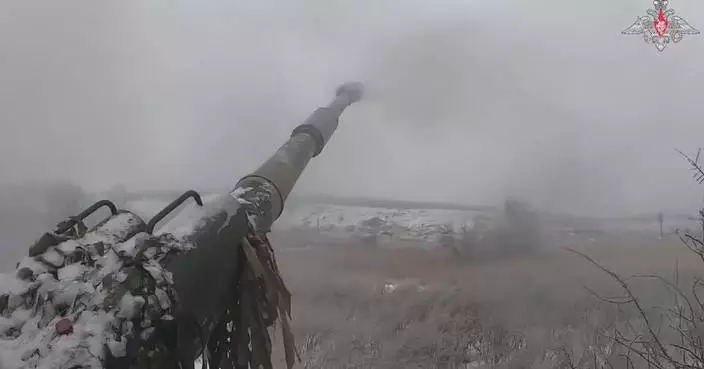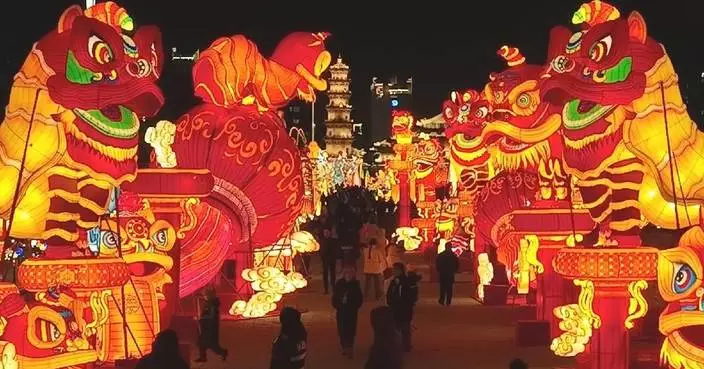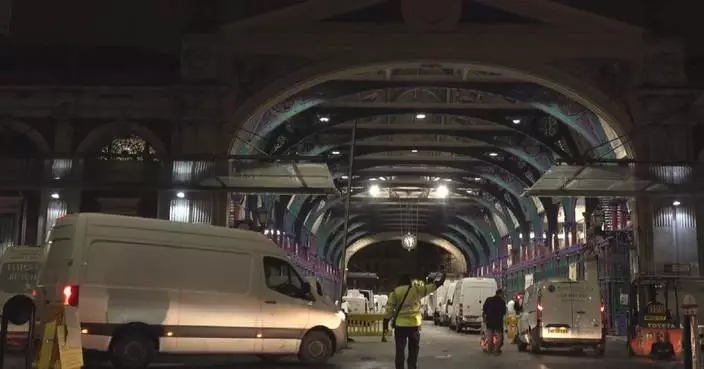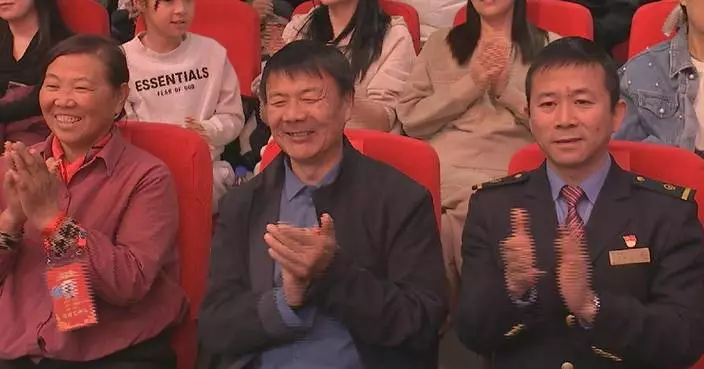South China's Guangxi Zhuang Autonomous Region is positioning itself as a new e-commerce hub for products from ASEAN countries, launching consumption initiatives that blend online innovation with offline experiences.
The online store of the China-ASEAN Special Products Hub in Nanning, the region's capital city, has introduced a variety of new products, many of which quickly became bestsellers.
To cater to diverse consumer needs, the hub integrated online digital platform with immersive offline exhibitions, creating a one-stop platform for trade between China and ASEAN, Regional Comprehensive Economic Partnership (RCEP) countries, and those participating in the Belt and Road Initiative.
Currently, over 5,500 products from numerous merchants are available online.
Guangxi also hosted vibrant promotional events, such as New Year-themed market and silk road e-commerce festival, distributing over 600,000 vouchers for supermarkets, travel, accommodation, and dining.
"We've introduced a series of preferential policies for the 10 ASEAN countries, including four exemptions and two reductions, to enhance cooperation and share the benefits of China's large market. These measures aim to provide higher quality supplies to meet the evolving consumer demands," said Pan Yingying, director of the Electronic Commerce and Information Technology Division under the region's Department of Commerce.
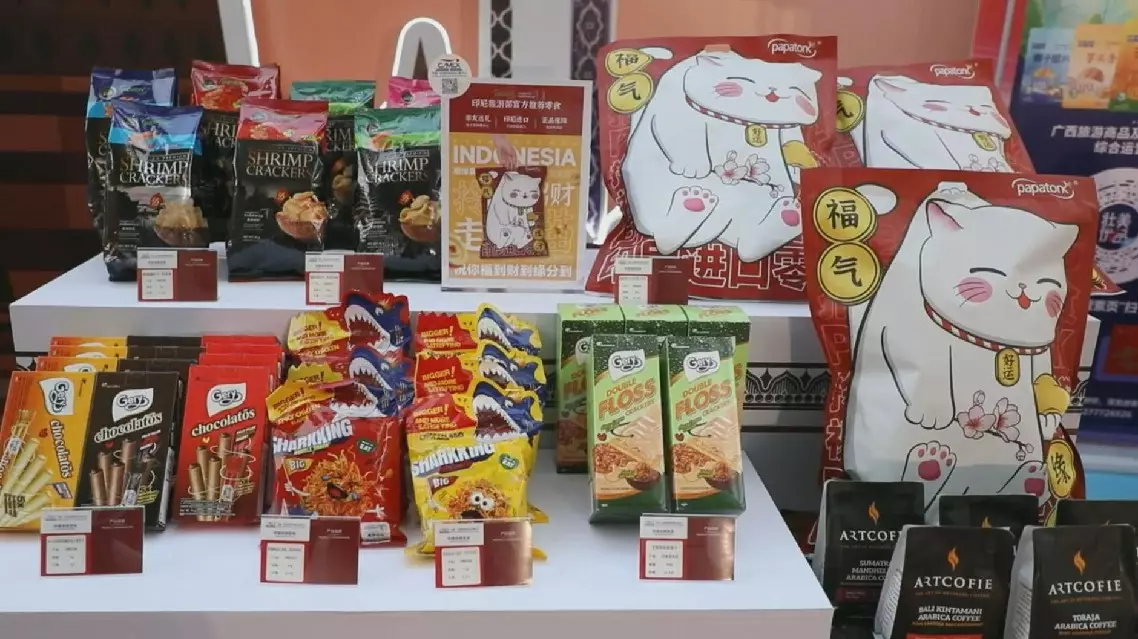
Guangxi builds e-commerce hub for ASEAN's products to boost consumption
Both supporters and protesters staged rallies near the residence of South Korea's impeached President Yoon Suk-yeol on Sunday, a day before an arrest warrant for him expires.
On the day, conservative groups supporting Yoon and labor groups which hold opposing views called on the public to gather outside the presidential residence. Both sides sought to control the traffic near the residence.
Supporters of the president stressed that removing him from office would not solve the greater challenges the country faces.
"Some people said that as long as the president is arrested, as long as he steps down, everything will be solved. I think this is wrong, so I want to stand out and show my support," said a supporter.
When asked about Yoon's refusal to cooperate with the investigation into his martial law order in early December, the supporter stressed the necessity of waiting for South Korea's constitutional court's ruling.
Protesters said Yoon's declaration of martial law in December posed a significant threat to the fair governance of the country.
"Everyone may have different ideas, but most people, most citizens think that there is a problem now. If you don't stand out and speak up, there will be no change in the status quo. As an ordinary citizen, I think I should stand out and make my voice heard. Without citizens, this country will not exist, and there will be no constitution. But (Yoon) pointed the gun at the people and the constitution. Under the system of separation of powers, martial law was declared (because the National Assembly did not cooperate with the government to legislate). I can't agree with it at all," a protester said.
The investigators of the Corruption Investigation Office for High-ranking Officials (CIO) attempted to arrest Yoon in his residence on January 3, but they failed as the presidential security service blocked the execution of the arrest warrant which was issued by the Seoul Western District Court.
A second arrest operation is being planned, but no action has been taken yet.
The arrest warrant remains valid until Monday.
According to multiple media outlets, the CIO will seek the extension of a warrant to arrest the impeached Yoon on Monday after entrusting the National Office of Investigation (NOI) with the task of executing the warrant on Sunday.
The impeachment motion against Yoon was passed by the National Assembly on December 14 last year and delivered to the constitutional court to deliberate it for up to 180 days, during which Yoon's presidential power is suspended.
Yoon, who was named by investigative agencies as a suspected ringleader on an insurrection charge, declared martial law on the night of December 3, 2024 but it was revoked by the National Assembly hours later.
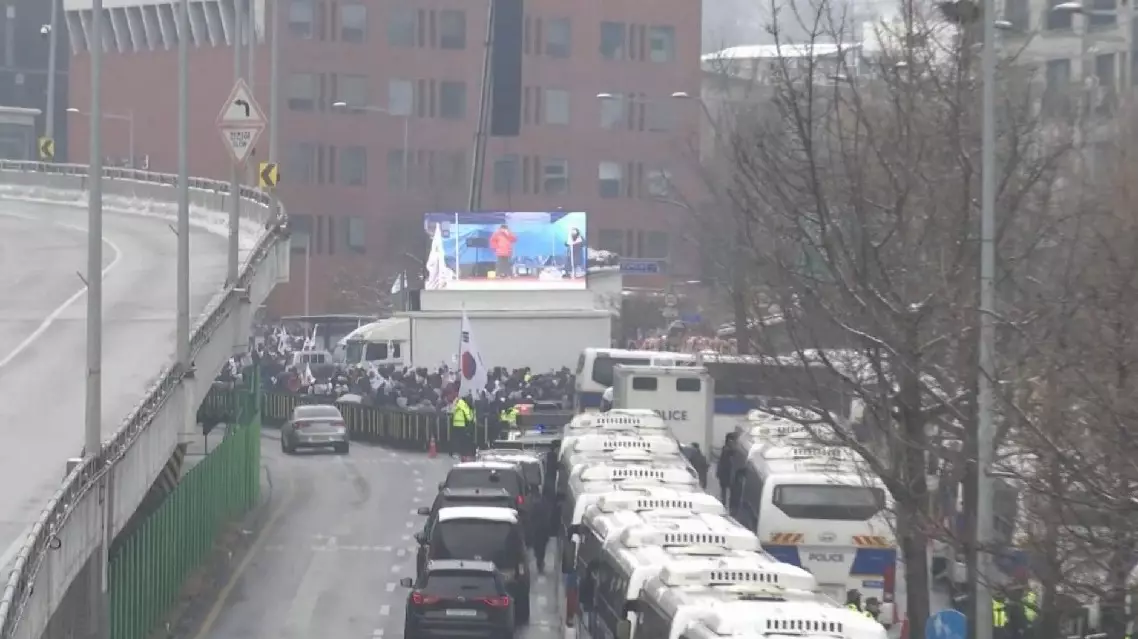
Supporters, protesters gather at impeached South Korean president's residence




